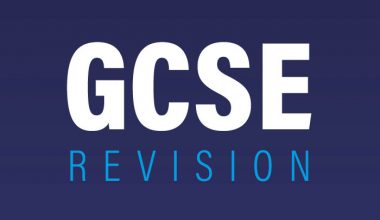As the GCSE English Language exams draw close, you may start to experience visions of essay marathons dancing in your head. There’s that panicky feeling; that fear of staring at a blank page, desperately trying to remember all the literary terms you crammed the night before because the goal is to get a 9 in GSCE English Language.
The good news is that you don’t need to bite off your nails before acing your English Language exam. Besides the all-nighters and frantic memorizations, there are tips and strategies to pass your English Language exams in flying colours.
Fortunately, in this article, we’ll discuss the exam secrets, equip you with analysis skills, and provide the right guidance to secure that elusive grade 9.
Table of contents
How to Get a 9 in GCSE English Language
Here are the proven steps to get a 9 in GSCE English Language:
Understand the Examiner’s Expectations
To excel in your GCSE English Language exams, it’s crucial to grasp exactly what the examiners are looking for.
Each question and paper has specific requirements, often indicated by the weighting of Assessment Objectives (AOs). You must tailor your responses accordingly, giving more attention to AOs with higher weighting.
Familiarize yourself with the exam specifications and mark schemes to confidently meet the examiner’s expectations. This ensures you don’t mistake an English Language paper for an English Literature one, a common error among students.
Ask yourself: Is the question about summarizing, comparing, or analyzing an extract, or the entire source? Get to know your exam board, whether it’s AQA, Edexcel, OCR, CCEA, or WJEC.
You should read: 10 Best Naval Architecture Schools | Admission, Cost
Cultivate Insightfulness
While effective analysis is essential in GCSE English Language, being insightful and perceptive can significantly elevate your grade. Beyond inferring the writer’s intent, acknowledge diverse perspectives and interpretations. Examiners appreciate multidimensional analysis.
Don’t limit your analysis to just words and phrases; consider sentence structures and the writer’s possible intentions behind them.
Elevate Your Terminology and Vocabulary
Even if you are writing the GSCE at the minimum age, using advanced terminology and vocabulary is pivotal for achieving top grades. It demonstrates confidence and assurance in your writing.
Accurately identifying nuanced techniques sets you apart. Replace basic phrases like ‘the word…suggests’ with specific word classes. Sophisticated punctuation, such as semicolons, ellipses, and dashes, can also enhance your writing.
You should read: 10 Best Music Education Colleges for Students & Teachers
Thoroughly Analyze Quotations
In GCSE English Language, in-depth analysis is vital. Dedicate ample effort to extracting insights from a single quote before moving on.
After a holistic analysis, zoom in for word-level examination. Explore word connotations and their impact on the atmosphere.
Practice Analysis
Mastering analysis in GCSE English Language demands practice. Select random excerpts from suitable novels, identify language techniques, and assess their effects.
Consider the text’s structure, the writer’s choices, and their impact on readers. Put yourself in the writer’s shoes and question your findings for richer answers.
Also check out this content: Top Companies That Offer Tuition Reimbursement to Students
Manage Your Timing
Timing often challenges students, but practice is the key to improvement. Start by allowing yourself extra time for answers and gradually reduce it until you can complete questions and papers within time limits.
Consider Tutor Support
Educators with expertise in GCSE English Language can be invaluable. Exam Centre London offers various support options, including resit opportunities, complete or short series courses, mock assessments, exam preparation, and pre-examination visits. Their guidance can help you prepare effectively for success.
Check out this related content: 10 Best Laundry Bags for Your College Dorm
How can I improve my essay writing for the GCSE exam?
- Understand the Question: Begin by thoroughly understanding the essay prompt or question. Identify key terms and concepts to ensure you’re addressing what is asked.
- Plan Your Essay: Take a few minutes to outline your essay before you start writing. Organize your thoughts and create a clear structure with an introduction, body paragraphs, and a conclusion.
Introduction:
- Start with a compelling hook to grab the reader’s attention.
- Provide context and background information relevant to the topic.
- State your thesis or main argument concisely and clearly.
Body Paragraphs:
- Each paragraph should focus on a single point or idea related to your thesis.
- Begin with a topic sentence that introduces the main point of the paragraph.
- Provide evidence and examples to support your argument. Use quotations, statistics, or references to texts as needed.
- Analyze the evidence and explain how it supports your argument.
- Use transition words to ensure a smooth flow between paragraphs.
Analysis and Critical Thinking:
- Avoid summarizing the text; instead, focus on analyzing its key elements, such as themes, characters, literary devices, and the author’s techniques.
- Be critical and engage in deeper analysis. Ask yourself why certain elements are used and what their significance is.
- Consider alternative interpretations and perspectives, demonstrating your critical thinking skills.
Vocabulary and Language:
- Use a varied and precise vocabulary to convey your ideas effectively.
- Avoid repetition of words and phrases.
- Pay attention to sentence structure and grammar to ensure clarity and coherence.
Conclusion:
- Summarize your main points without introducing new ideas.
- Reiterate your thesis and the significance of your argument.
- End with a thought-provoking or conclusive statement that leaves a lasting impression.
Proofread and Edit
- Always proofread your essay for spelling, grammar, and punctuation errors.
- Check for clarity and coherence in your writing.
- Ensure that your essay flows logically from one point to the next.
After you have done this, you should also try:
- Practice Writing Essays: The more you practice, the better you’ll become. Write essays on various topics and under timed conditions to simulate exam situations.
- Seek Feedback: Ask teachers, peers, or tutors to review your essays and provide constructive feedback. Learn from their suggestions and areas where you can improve.
- Study Model Essays: Read and analyze high-scoring essays or sample responses to understand what makes them effective.
- Time Management: Practice writing essays within the time constraints of the GCSE exam to improve your time management skills.
Remember that improvement takes time and consistent effort. By following these steps and practicing regularly, you can enhance your essay-writing skills and perform well in your GCSE exams.
You should read: How to Pay Off Your Student Loans in 5 Years: A Step-by-Step Guide
Is it easy to get a 9 in GCSE?
Earning a grade 9 in GCSE (General Certificate of Secondary Education) is not necessarily easy, but it is achievable when you learn the right approach to prepare and dedicate your time and effort. Here are some factors to consider:
- High Standards: In the UK, a grade 9 represents the highest level of achievement in GCSE exams. It signifies exceptional knowledge and understanding of the subject matter. Achieving a grade 9 typically requires a deep understanding of the material, strong critical thinking skills, and effective exam strategies.
- Subject Complexity: The ease or difficulty of earning a grade of 9 can vary depending on the subject. Some subjects may have more demanding content and assessment criteria, making it harder to achieve the top grade.
- Preparation: Success in GCSE exams often comes down to thorough preparation. Students who consistently study, practice, and engage with the subject matter are more likely to achieve top grades.
- Effective Study Habits: Developing effective study habits, such as setting a study schedule, using study resources, seeking help when needed, and staying organized, can greatly improve your chances of earning a grade 9.
- Exam Technique: Understanding how to approach exam questions, manage your time, and present your answers clearly and concisely is crucial for achieving a grade 9.
- Consistency: Consistent effort and engagement throughout the course, rather than last-minute cramming, tend to yield better results.
- Subject Interest and Aptitude: Your level of interest in the subject and your natural aptitude for it can influence your ability to achieve a grade of 9. Passion for the subject often leads to deeper learning and better performance.
- Practice Exams: Taking practice exams and past papers under timed conditions can help you become familiar with the format of GCSE exams and improve your exam technique.
What percentage is a 9 in GCSE English?
In the GCSE grading system used in the UK, a grade of 9 is the highest attainable grade, and it represents exceptional performance.
However, the percentage required to achieve a grade of 9 can vary from year to year and across different exam boards due to the way the grading system is designed.
GCSE exams are graded using a system of numbered grades, with 9 being the highest and 1 being the lowest. In general, grade 9 is awarded to only a small percentage of students who perform exceptionally well on the exam.
To give you a rough idea, in some cases, a grade of 9 might correspond to scores in the range of approximately 80% to 100% on specific exam papers, but this can vary depending on the difficulty of the paper and the overall performance of students who took the exam that year.
It’s important to note that exam boards use a complex statistical process called “comparable outcomes” to determine grade boundaries each year.
This process takes into account factors like the difficulty of the exam and the distribution of scores among students. As a result, the percentage required for a grade 9 can fluctuate from one year to the next.
To know the specific grade boundaries for a particular GCSE English exam, you should refer to the official website of the exam board (e.g., AQA, Edexcel, OCR, CCEA, WJEC) or consult your school or teacher, as they typically have access to this information.
Also check out this content: What the NMQST is and Why is it so Important?
Conclusion
Achieving a grade 9 in GCSE English Language is a goal well worth pursuing. Remember, it’s not just about being an expert wordsmith; it’s about understanding how to analyze texts and express yourself clearly.
By staying organized, practicing consistently, and seeking help when needed, you’re well on your way to that top grade. So, keep the faith, keep writing, and keep reading – success in English Language is within your reach!
Check out this related content: What you should know about Student Loan “Principal Balance?’
Frequently Asked Questions
Begin by building a strong reading habit. Read a variety of texts, from fiction to non-fiction, and pay attention to how they’re written. This will improve your comprehension and writing skills over time.
Focus on planning your essays effectively. Create outlines before you start writing, and make sure your introduction presents your argument. Use PEEL (Point, Evidence, Explanation, Link) to structure your paragraphs.
Make vocabulary building a daily habit. Learn a new word every day and try to use it in your writing and conversations. Reading widely also exposes you to new words.
Pay attention to the author’s choices – why they use certain words, phrases, or literary devices. Consider the context, themes, and impact of these choices on the reader.
Seeking help is a smart move. Teachers and tutors can provide personalized guidance, review your work, and address your specific weaknesses. Don’t hesitate to ask questions and clarify doubts; it can make a significant difference in your performance.
References
- examcentrelondon.co.uk– how to get a 9 in English language GCSE
- owltutors.co.uk– 9 ways to get a 9 in GCSE English language
- thinkstudent.co.uk– how to get a 9 in GSCE English language
- intuitionpyp.co.uk– how to get a 9 in GCSE English language
Recommendations
- 10 Best Architectural and Engineering Managers Colleges
- What To Do When Student Loan Account Is Closed Due To Transfer
- How to Submit the FAFSA To More Than 10 Colleges
- 10 Smart Questions to Ask on a College Tour | Act Smart
- What If My Family Can’t Meet Our EFC? Best Alternative
- 10 Best Naval Architecture Schools | Admission, Cost






